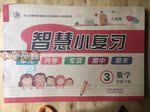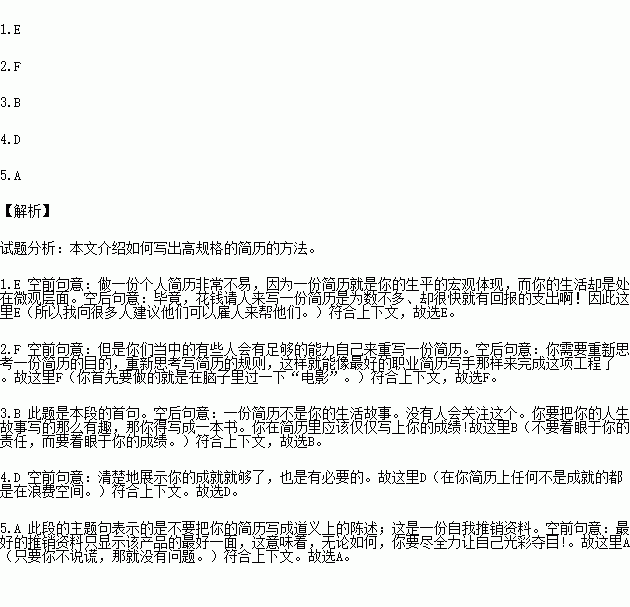题目内容
根据短文内容,从短文后的选项中选出能填入空白处的最佳选项。选项中有两项为多余选项。
It’s very hard to write your own resume because a resume is a macro view of your life, but you live your life at the micro level. 1.__________ After all, spending money on a resume writer is one of the few payouts that will have good return right away.
But some of you will be able to do a proper job rewriting your resume on your own. 2.________ You need to rethink the goals and rethink the rules of a resume in order to approach the project like the best of the resume professionals.
3.___________ A resume is not your life story. No one cares. The only things that should be on your resume are achievements. Anyone can do their job, but only a small percentage of the population can do their job well, wherever they go. The best way to show that you did your job well is from achievements. The best achievement is a promotion. It is an objective way to show that you impress the people you will work for. Presenting clearly your achievements is enough and also necessary. 4._________
Don’t make your resume a moral statement. It’s a marketing document. Think about when a company announced the launch of their product. You need to take the same approach with your resume, because a resume is a marketing document. The best marketing documents show the product in the best light, which is to use whatever possible means to make you look good. 5._________
A. As long as you are not lying, you will be fine.
B. Don’t focus on your responsibilities, focus on what you achieved.
C. Write what achievements you will make for the people you work for.
D. Anything on your resume that is not an achievement is wasting space.
E. So I recommend to a lot of people that they hire someone to help them.
F. The first thing you’ll have to do is to make some mental shifts.
G. So learning to write your own resume is important.
 智慧小复习系列答案
智慧小复习系列答案
